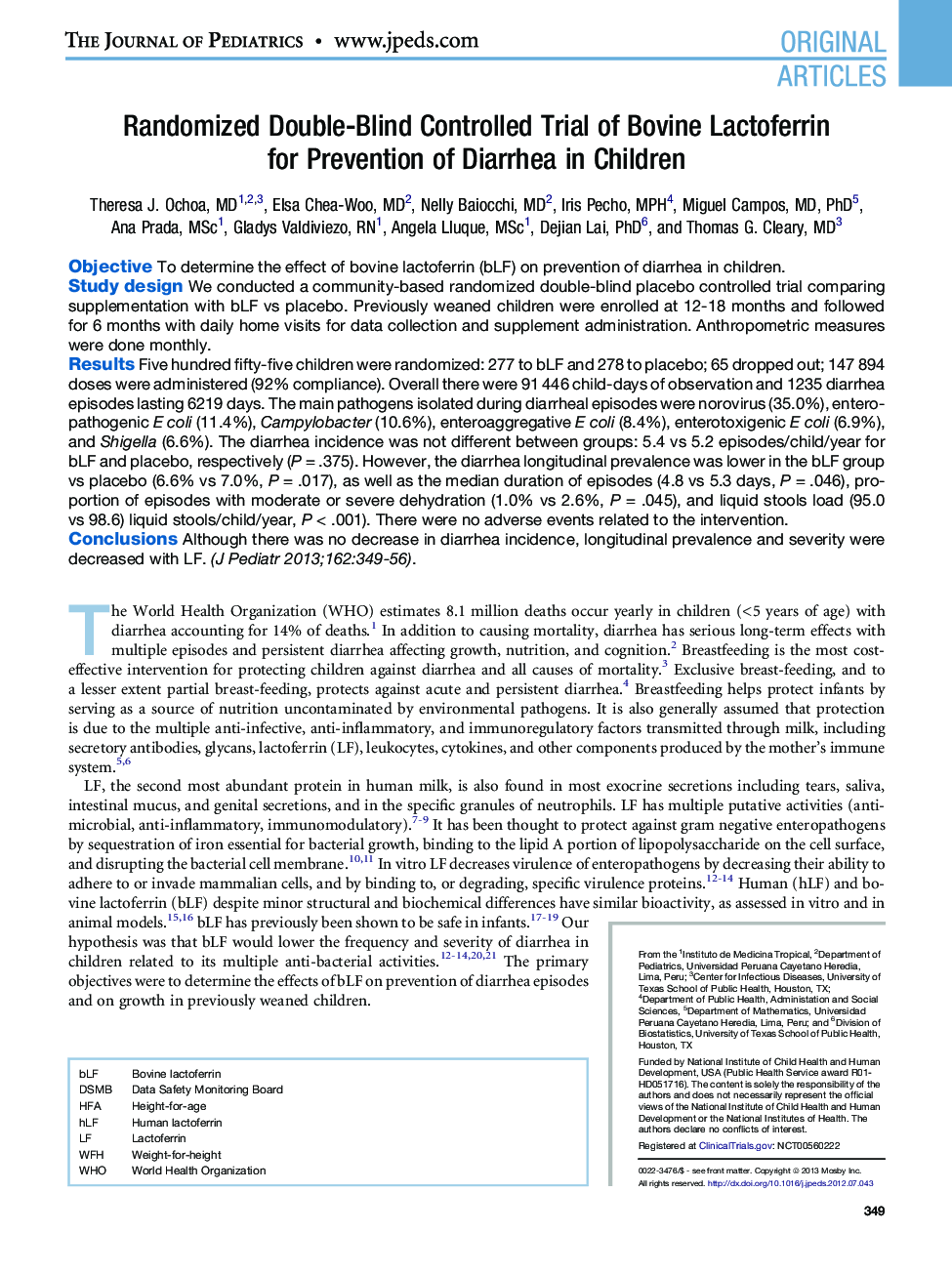| Article ID | Journal | Published Year | Pages | File Type |
|---|---|---|---|---|
| 6223889 | The Journal of Pediatrics | 2013 | 8 Pages |
ObjectiveTo determine the effect of bovine lactoferrin (bLF) on prevention of diarrhea in children.Study designWe conducted a community-based randomized double-blind placebo controlled trial comparing supplementation with bLF vs placebo. Previously weaned children were enrolled at 12-18 months and followed for 6 months with daily home visits for data collection and supplement administration. Anthropometric measures were done monthly.ResultsFive hundred fifty-five children were randomized: 277 to bLF and 278 to placebo; 65 dropped out; 147 894 doses were administered (92% compliance). Overall there were 91 446 child-days of observation and 1235 diarrhea episodes lasting 6219 days. The main pathogens isolated during diarrheal episodes were norovirus (35.0%), enteropathogenic E coli (11.4%), Campylobacter (10.6%), enteroaggregative E coli (8.4%), enterotoxigenic E coli (6.9%), and Shigella (6.6%). The diarrhea incidence was not different between groups: 5.4 vs 5.2 episodes/child/year for bLF and placebo, respectively (PÂ =Â .375). However, the diarrhea longitudinal prevalence was lower in the bLF group vs placebo (6.6% vs 7.0%, PÂ =Â .017), as well as the median duration of episodes (4.8 vs 5.3 days, PÂ =Â .046), proportion of episodes with moderate or severe dehydration (1.0% vs 2.6%, PÂ =Â .045), and liquid stools load (95.0 vs 98.6) liquid stools/child/year, PÂ <Â .001). There were no adverse events related to the intervention.ConclusionsAlthough there was no decrease in diarrhea incidence, longitudinal prevalence and severity were decreased with LF.
